Road to Paris: Tongan Swimmer Noelani Day Prepares for Second Olympics
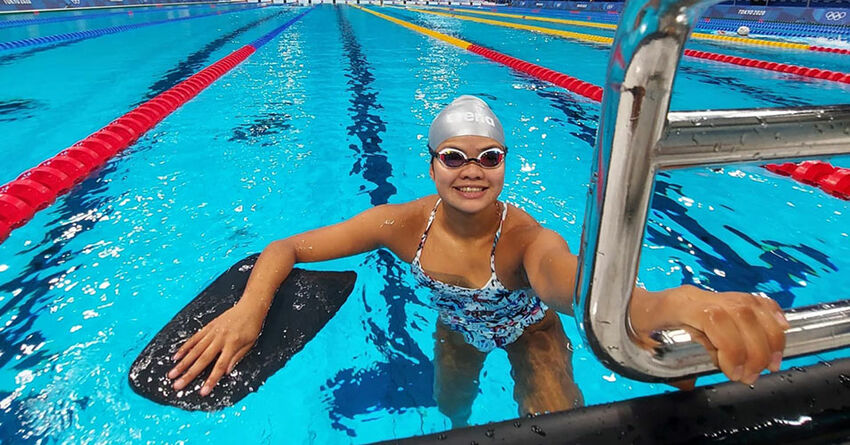
"My background was completely different from your average collegiate swimmer, which for a while made me a bit insecure, but now it is something I am proud of. I grew up in a country where we did not have proper facilities or a swimming pool, so we trained in the ocean. I am slowly overcoming it and understanding that the pathway to the Olympics looks different for so many athletes. Mine might not be the most conventional, but I wouldn’t have it any other way."
-
As the first Olympic swimmer born and raised in Tonga, Day’s achievements are historic. Her goals extend beyond swimming, as she pursues degrees in Human Biology and Documentary Film, while also working at USC. Balancing her academics, future career plans, and Olympic training has required strategic preparation and time management.
Day’s swimming journey started in Tonga, a collection of islands without an Olympic-size pool. Her early training was in the ocean and at makeshift facilities like hotel pools and navy bases. At age 8, she joined Tonga’s first swim club, founded by Canadian expat Ella Mawdsley.
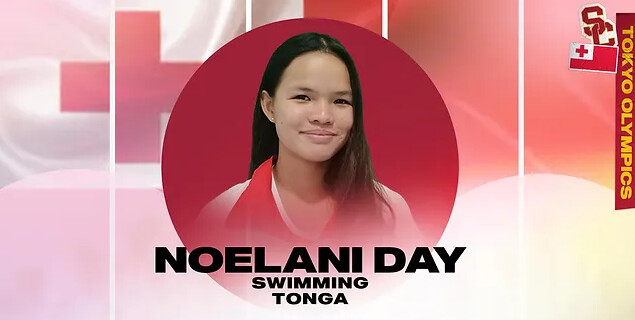
Reflecting on her early experiences, Day shared, "I grew up around the ocean. My house is right next to a lagoon, and my parents always encouraged me and my brother to swim when we were younger. When I was eight, my mom found a swim club, and as soon as I started competing, I knew it was something I wanted to continue."
Day’s mother Vila Ardell reminisced, "I remember when she was eight years old and told me her dream was to make the Olympics, and I knew being a kid in Tonga, swimming in the ocean and with limited resources, what type of challenge that meant. But I just said, 'OK then.' Seeing her achieve her Olympic dream is just the cherry on top, but the bond that I have with my daughter, and the journey that we shared, that is the greatest blessing."
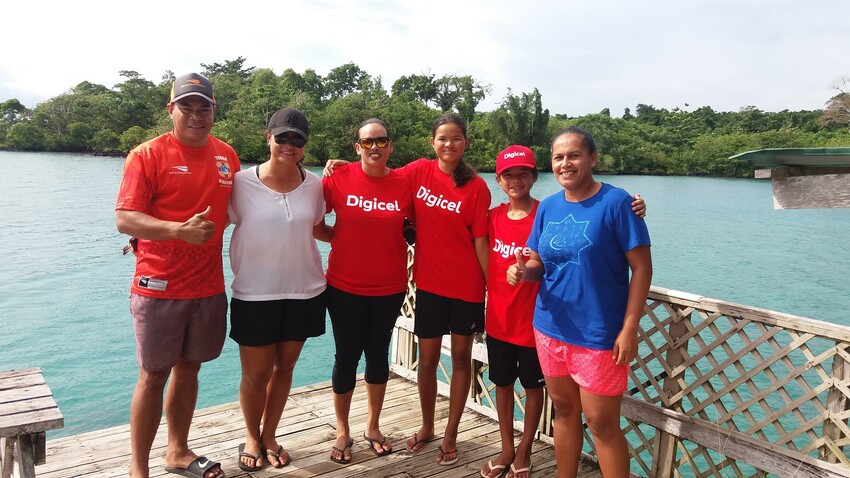
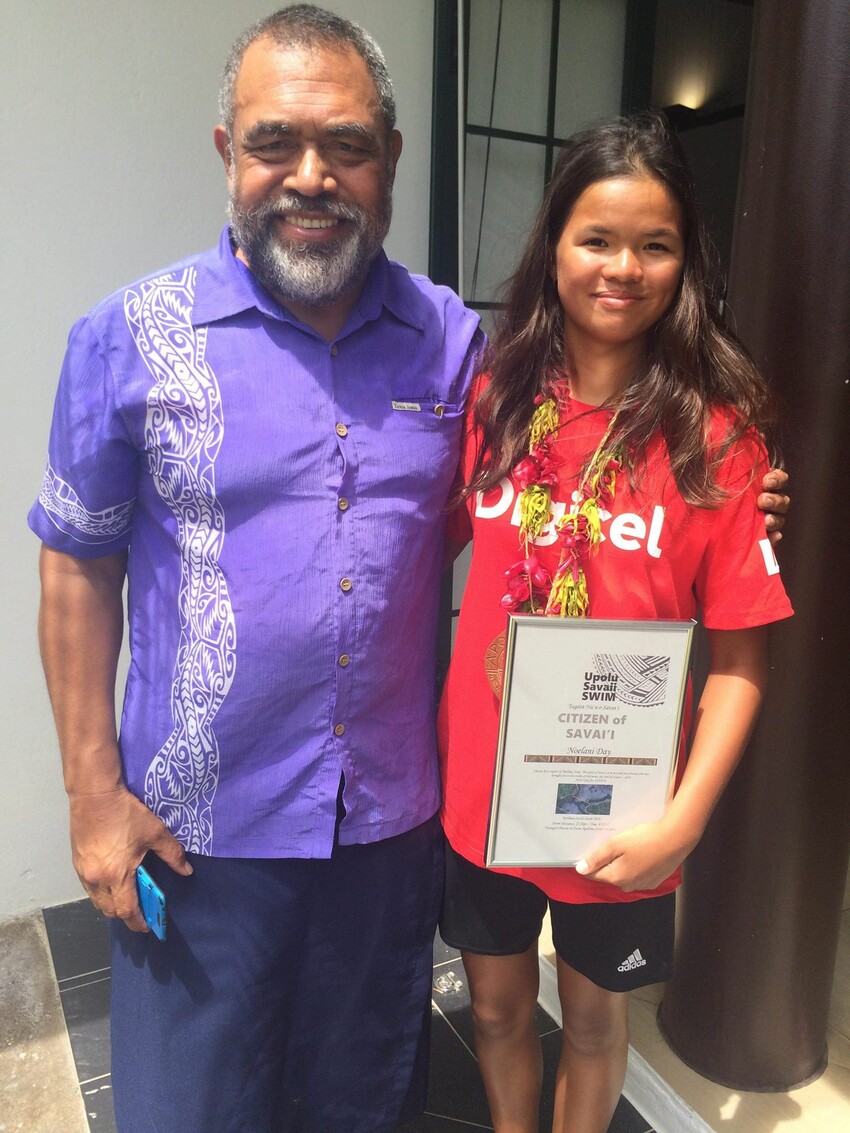
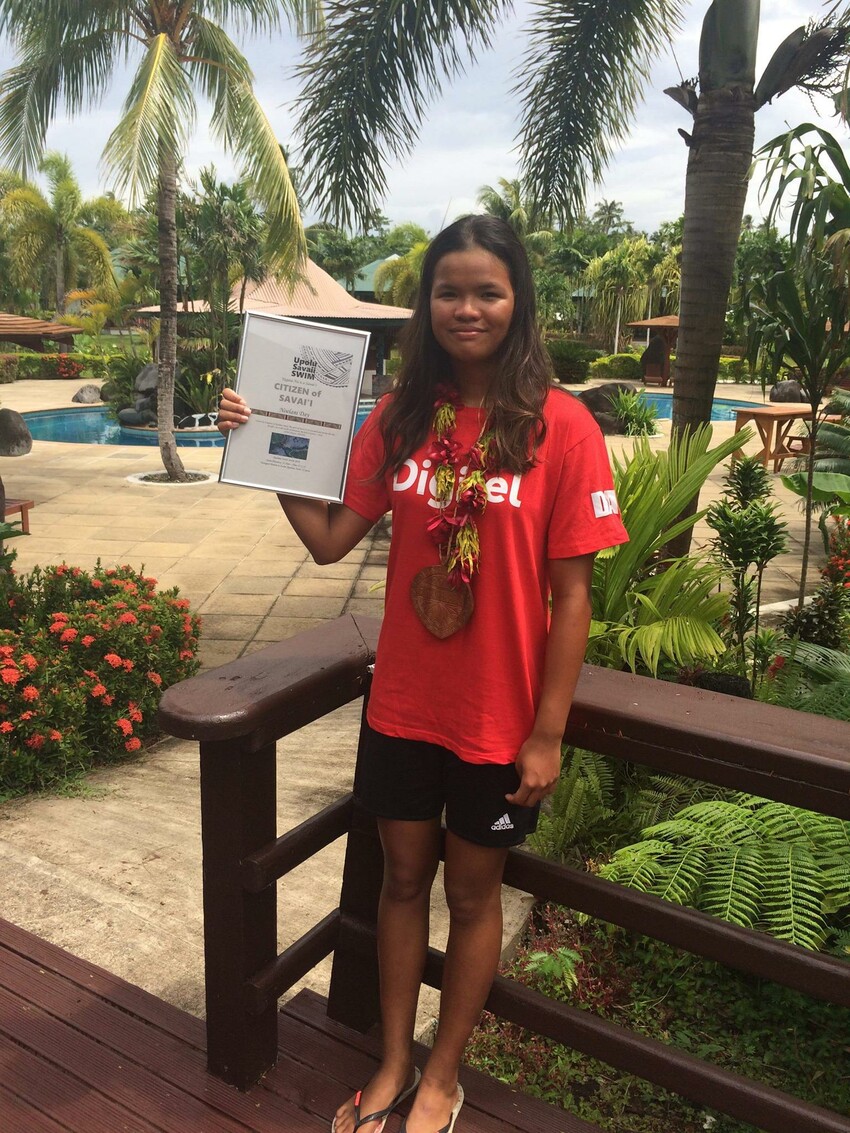
At 14, Day became the youngest person to swim the 22.3 km Apolima Strait in Samoa, despite battling dengue fever and a shoulder injury. She recalled, "Two weeks out from it, I had dengue fever for two weeks, so I was out of training for a long time. Halfway into the swim, my shoulder blew out. My mom really was the reason why I finished the swim; she just encouraged me to keep going and to fight as hard as I could."
Despite the cultural bond with the ocean in Pacific islander culture, competitive swimming is not widely embraced in Tonga, especially for women. Day faced opposition but persevered, hoping to pave the way for others. "You don't usually see a lot of female athletes, especially here in Tonga. For me, it was just a challenge to expose myself to the community and be comfortable as a swimmer and a female athlete," she said.
Preparing for the Paris Olympics has presented new challenges. "Preparing for the Paris Olympics has been a whole different ball game than it was preparing for Tokyo Olympics," Day said. "Now I am a full-time college student, and a student worker at USC. I have had to be a lot more strategic with my preparation plans to balance my academics, future career, and extracurricular activities."
Despite not competing for USC's Division 1 Swim Team, Day continues to compete for Tonga’s National team and USC Swim Club. "My background was completely different from your average collegiate swimmer, which for a while made me a bit insecure, but now it is something I am proud of. I grew up in a country where we did not have proper facilities or a swimming pool, so we trained in the ocean. I am slowly overcoming it and understanding that the pathway to the Olympics looks different for so many athletes. Mine might not be the most conventional, but I wouldn’t have it any other way."
Day's inspiring story rings true for many of our Pacific Athletes heading to the Olympics this year. But where our islands lack in resource, our athletes make up for in heart and sheer strenght of will. Much like Noelani Day.
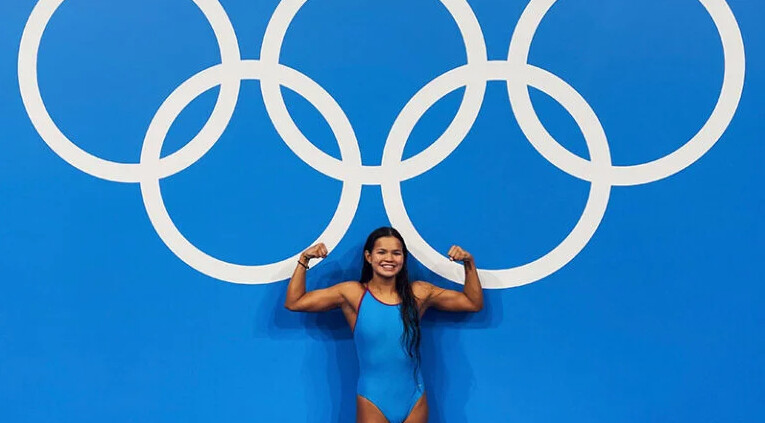
The swimmer is also involved with the Talitha Project, an NGO empowering young girls and women in Tonga. She aims to inspire others through her achievements and dedication to sport. "I just say, encourage any girls to join a sport. It's great. Even though you have people trying to pull you down, it's so worth it to pursue your dream," Day encouraged.
“One of the most joyful things for me is to have younger girls come up to me and say, ‘I really like this and I want to compete, too’” Day said. “Seeing them feel confident and inspired means I’ve done my job.”
- Written by Arts & Culture Journalist Destiny Momoiseā
made with the help of Creative New Zealand
